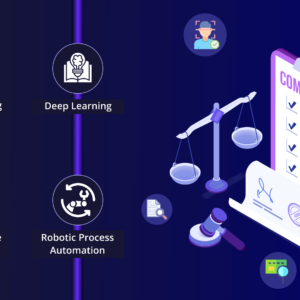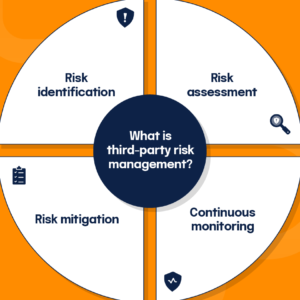The recruitment landscape is undergoing a significant shift, with Skills-Based Hiring emerging as a revolutionary approach. This new paradigm focuses on the skills and competencies of candidates, rather than their traditional resumes. At the heart of this movement is the skills assessment, which enables employers to accurately evaluate a candidate’s abilities. Skills-Based Hiring is transforming the way companies find and hire talent, and it’s essential to understand its implications.
As the job market continues to evolve, the importance of skills assessment in the recruitment process cannot be overstated. By prioritizing skills over traditional qualifications, companies can tap into a more diverse pool of candidates and make more informed hiring decisions. Skills-Based Hiring is not just a trend, but a necessary step forward in creating a more efficient and effective recruitment process.
Introduction to Skills-Based Hiring
In the United States, companies like Google and Microsoft are already embracing Skills-Based Hiring, recognizing its potential to drive business success. By adopting this approach, employers can ensure they’re getting the best talent for the job, regardless of their background or experience. The skills assessment is a critical component of this process, allowing companies to objectively evaluate a candidate’s skills and abilities.
Key Takeaways
- Skill-Based Hiring is becoming increasingly popular in the US job market
- The skills assessment is a crucial part of the recruitment process
- Companies like Google and Microsoft are already adopting Skills-Based Hiring
- This approach can lead to more diverse and qualified candidate pools
- Skill-Based Hiring is essential for driving business success in a rapidly changing job market
- Employers can make more informed hiring decisions using skills assessments
Understanding Skills-Based Hiring
As the job market continues to evolve, companies are shifting their focus towards a more effective hiring strategy. Skills-based hiring has emerged as a key approach, offering a more comprehensive evaluation of candidates. This method prioritizes the skills and abilities required for a specific role, rather than relying solely on traditional qualifications.
In a skills-based hiring approach, the candidate evaluation process is more nuanced. It involves assessing the candidate’s skills, experience, and fit for the role, rather than just their resume or cover letter. This leads to better hiring decisions, as companies can identify the most suitable candidates for the position.
Some key aspects of skills-based hiring include:
- Identifying the essential skills required for the role
- Developing effective skills assessments to evaluate candidates
- Integrating skills-based hiring into the overall hiring strategy
By adopting a skills-based hiring approach, companies can improve their candidate evaluation process, leading to better job matches and increased employee satisfaction. As the job market continues to evolve, it’s essential for companies to adapt their hiring strategy to prioritize skills and abilities, rather than traditional qualifications.
Benefits of Skills-Based Hiring
By adopting a skills-based hiring approach, companies can significantly improve their talent acquisition process. This method focuses on identifying the specific skills and competencies required for a job, rather than relying on traditional qualifications like education or work experience. As a result, companies can attract a more diverse pool of candidates, including those who may have acquired skills through non-traditional means.
Competency-based hiring is a key aspect of skills-based hiring, as it allows companies to assess a candidate’s ability to perform specific tasks and duties. This approach has been shown to lead to improved candidate matching, as companies are better able to identify candidates who possess the necessary skills and competencies for the job. According to studies, companies that use competency-based hiring experience higher levels of employee retention and job satisfaction.
Key Advantages
- Improved candidate matching, resulting in better job fit and higher employee retention
- Increased diversity in hiring, as candidates are assessed based on skills rather than traditional qualifications
- Enhanced employee retention, as companies are able to identify and develop the skills and competencies of their existing workforce
By incorporating skills-based hiring into their talent acquisition strategy, companies can gain a competitive edge in the job market. This approach not only improves the quality of hire but also enhances the overall efficiency of the hiring process. As companies continue to evolve and adapt to changing market conditions, the importance of skills-based hiring will only continue to grow.
The Role of Technology in Skills-Based Hiring
Technology plays a vital role in facilitating skills-based hiring, enabling employers to streamline the recruitment process and make more informed decisions. By leveraging innovative tools and platforms, companies can efficiently identify top talent and assess their skills, leading to better job skills identification and employment screening. This, in turn, helps to reduce the time and cost associated with traditional hiring methods.
Some of the key technological tools used in skills-based hiring include skills assessment tools and applicant tracking systems (ATS). These solutions allow employers to create customized assessments that evaluate a candidate’s skills and abilities, providing a more accurate picture of their potential for success in a particular role. Additionally, ATS systems help to automate the screening process, enabling employers to quickly and easily identify the most qualified candidates.
Some benefits of using technology in skills-based hiring include:
- Improved accuracy in job skills identification
- Enhanced efficiency in employment screening
- Increased objectivity in the hiring process
- Better candidate experience through streamlined applications and assessments
By embracing technology and incorporating skills assessment tools and ATS systems into their hiring processes, companies can gain a competitive edge in the job market, attracting and retaining top talent and driving business success.
How Companies Implement Skills-Based Hiring
As companies shift towards skill-based recruitment, they must adapt their hiring processes to focus on the skills required for each role. This involves job description optimization to ensure that job postings accurately reflect the skills needed for the position. By doing so, companies can attract candidates with the right skills, rather than just those with impressive resumes.
To implement skills-based hiring, companies must first identify the required skills for a role. This can be done by analyzing the job description and determining the key skills necessary for success. Some companies use skills assessment tools to help with this process. For example, companies like IBM and Google use skills assessments to identify top talent and ensure that candidates have the skills required for the role.
Best Practices for Implementation
- Use skills assessments to identify top talent
- Optimize job descriptions to reflect required skills
- Provide training and development opportunities to help employees build new skills
By following these best practices, companies can successfully implement skills-based hiring and improve their overall recruitment process. This approach can lead to better candidate matching, increased diversity in hiring, and enhanced employee retention. As companies continue to evolve and grow, skill-based recruitment will play an increasingly important role in helping them find and develop the talent they need to succeed.
Overcoming Challenges in Skills-Based Hiring
As companies adopt skills-based hiring, they may encounter several challenges that can hinder the effectiveness of this approach. One of the primary concerns is resistance from traditional mindsets, where hiring managers may be accustomed to relying on resumes and cover letters to assess candidates. To overcome this, it’s essential to educate hiring teams on the benefits of skills-based hiring and provide them with the necessary tools and training to implement this strategy successfully.
A well-structured candidate evaluation process is crucial in skills-based hiring, as it enables companies to assess candidates’ skills accurately and make informed hiring decisions. A key aspect of this process is to ensure that the hiring strategy is aligned with the company’s goals and objectives. By doing so, companies can identify the most suitable candidates for the role and reduce the risk of bias in the hiring process.
Some strategies for overcoming challenges in skills-based hiring include:
- Providing training and support for hiring teams to help them understand the skills-based hiring approach
- Implementing a robust candidate evaluation process to ensure fairness and accuracy
- Regularly reviewing and refining the hiring strategy to ensure it remains effective and aligned with business goals
By addressing these challenges and implementing a well-structured skills-based hiring approach, companies can improve their hiring outcomes and create a more efficient and effective recruitment process.
| Challenge | Solution |
|---|---|
| Resistance from traditional mindsets | Education and training for hiring teams |
| Bias in candidate evaluation | Implementing a robust candidate evaluation process |
| Ineffective hiring strategy | Regularly reviewing and refining the hiring strategy |
Real-World Examples of Skills-Based Hiring
Companies are increasingly adopting skills-based hiring to improve their talent acquisition processes. This approach focuses on assessing the skills and abilities of candidates rather than their traditional qualifications. Many organizations have successfully implemented skills-based hiring, resulting in improved job matches and increased employee satisfaction.
Some notable companies have led the way in adopting skills-based hiring. For example, Google and Microsoft use skills assessments to evaluate candidates’ technical skills. These companies have seen significant improvements in their hiring processes, with better job matches and reduced time-to-hire.
Companies Leading the Change
- Google: Uses skills assessments to evaluate technical skills
- Microsoft: Implements skills-based hiring to improve diversity and inclusion
- IBM: Uses AI-powered skills assessments to identify top talent
These companies have demonstrated the effectiveness of skills-based hiring in improving their talent acquisition processes. By focusing on skills assessment, they can identify the best candidates for each role, regardless of their traditional qualifications.
Success Stories
Studies have shown that skills-based hiring can lead to significant improvements in employee retention and job satisfaction. For example, a study by Gallup found that employees who use their strengths and skills at work are more likely to be engaged and productive. By adopting skills-based hiring, companies can create a more effective and efficient talent acquisition process, leading to better outcomes for both the organization and its employees.
| Company | Skills-Based Hiring Approach | Results |
|---|---|---|
| Technical skills assessments | Improved job matches, reduced time-to-hire | |
| Microsoft | Skills-based hiring for diversity and inclusion | Increased diversity in hiring, improved employee satisfaction |
| IBM | AI-powered skills assessments | Identified top talent, improved hiring efficiency |
Skills-Based Hiring and Candidate Experience
When it comes to skills-based hiring, the candidate experience is a crucial aspect to consider. By focusing on competency-based hiring and job skills identification, companies can create a more efficient and engaging application process. This approach allows candidates to showcase their skills and abilities, rather than just their education or work history.
Research has shown that skills-based hiring can lead to improved candidate satisfaction and reduced turnover rates. By streamlining the application process and making it more relevant to the job requirements, companies can attract top talent and reduce the time-to-hire. Some ways to enhance the candidate experience include:
- Clear job descriptions and requirements
- Skills assessments and evaluations
- Regular communication and feedback
- Transparent hiring processes
By incorporating competency-based hiring and job skills identification into the hiring process, companies can create a more positive and engaging experience for candidates. This approach not only benefits the candidate but also the company, as it leads to better job matches and increased employee retention. As the job market continues to evolve, it’s essential for companies to prioritize the candidate experience and adopt skills-based hiring practices that focus on the skills and abilities required for the job.
Future Trends in Skills-Based Hiring
As the job market continues to evolve, employment screening and skill-based recruitment are expected to play a crucial role in shaping the future of hiring. With technological advancements and shifting workforce needs, companies are adapting their recruitment strategies to focus on skills rather than traditional qualifications.
According to forecasting reports and research, the job market is expected to undergo significant changes in the coming years. Some of the key trends that are expected to emerge include:
- Increased use of artificial intelligence in employment screening to improve the efficiency and accuracy of the recruitment process
- Growing demand for skill-based recruitment as companies look to hire candidates with specific skills and expertise
- More emphasis on continuous learning and development to help employees stay up-to-date with the latest skills and technologies
As the role of recruiters continues to evolve, they will need to adapt to these changing trends and develop new strategies for attracting and retaining top talent. By embracing skill-based recruitment and employment screening, companies can improve the quality of their hires and stay ahead of the competition in the job market.
Tips for Job Seekers in a Skills-Based Landscape
As the job market evolves to favor skills-based hiring, job seekers must adapt their approach to stand out. The key is to optimize your job descriptions by highlighting the specific skills and competencies required for the role. Focus on showcasing your most relevant abilities, whether technical, soft, or industry-specific, to demonstrate your suitability.
Preparing for skills assessments is also crucial. Research the company’s assessment process and practice relevant exercises to showcase your talents. Approach these evaluations with confidence, showcasing your problem-solving skills and ability to think on your feet. Remember, skills-based hiring is about proving your capabilities, not just your credentials.
By aligning your job search strategy with the skills-based hiring trend, you can navigate the modern job market with greater success. Embrace the opportunity to showcase your unique strengths and abilities, and you’ll be well on your way to securing the right fit for your career aspirations.














